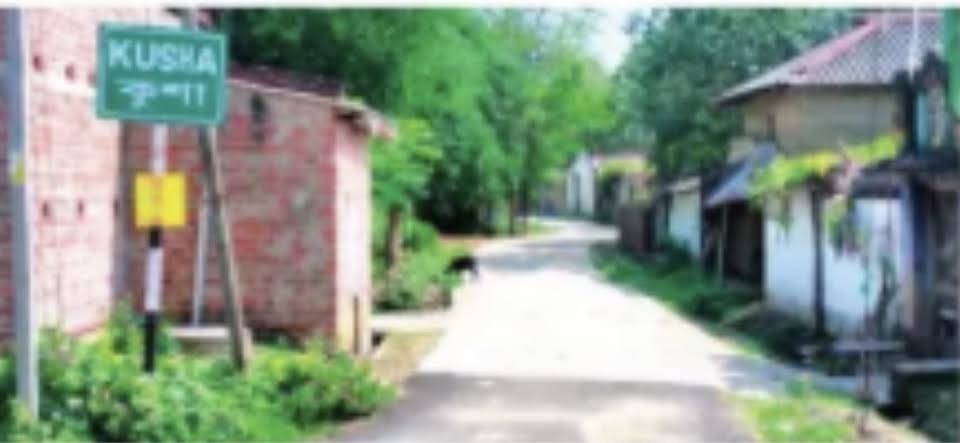Bus route in dead owner’s name: DM orders probe
The East Burdwan district administration has woken up to the fact on how a passenger route was allowed to continue even though the route owner had died eight months ago.
Tagore initially had Kushari as their surname as the Brahmin family hailed from Kusha, the small hamlet of East Burdwan currently inhabited by 214 people, where not a single descendant of the Kusharis could be found on the poet’s 162nd birthday.

Tagore’s ancestral village in Burdwan has no room for the poet (Photo:SNS)
There’s no room for Tagore at his ancestral place in East Burdwan, where his ancestral root was but not even his birthday is celebrated there either by the state machinery or by his former neighbourhood families or his kin over the centuries.
Interestingly, social reformer Swami Vivekananda and poet, novelist Rabindranath Tagore, both had their ancestral roots in Burdwan. Swami Vivekananda’s ancestral place was at Dutta Deriaton village in Kalna – II block where a high school and a Manan Kalyan Kendra (thought welfare centre) runs after his name.
Tagore’s root is engraved deep inside the fertile soil of Kusha village, barely 13 km away from Burdwan town, where the globally acclaimed ‘son of Bengal’ isn’t remembered suitably as yet. Tagore was born at his paternal house at Jorasanko House in Kolkata on 7 May, 1861.
Advertisement
Tagore initially had Kushari as their surname as the Brahmin family hailed from Kusha, the small hamlet of East Burdwan currently inhabited by 214 people, where not a single descendant of the Kusharis could be found on the poet’s 162nd birthday.
“We always take pride that the poet’s genesis is directly linked to our district and we’ve always expected that the government should do something to preserve evidences of Rabindranath’s ancestral root and his family’s memorabilia at Kusha village,” said Sarbajit Josh, secretary, Bardhaman Heritage Association. Kusharis were aristocratic Rarhi Brahmins, later reChristened as Pirali Brahmins (Pirali historically carried a pejorative connotation).
Rabindranath Tagore’s biographer Prabhat Kumar Mukhopadhyay in the first volume of ‘Rabindrajiboni – O – Rabindra Sahitya Probeshika’ narrated: “The Kusharis were descendants of Deenanath – the son of Bhatta Narayana.” Bhatta Narayana Mrgarajalaksman was a Sanskrit scholar and writer who belonged to the Pancharatra Rarhi branch of Sandilya family of Brahmins and lived before 800 AD.
“One branch of the Kushari family had migrated to Jessore where they practiced as priests and traders,” said Manas Basu, a Rabindra researcher. He added, “Since the family, before returning back to this part of Bengal, was involved in Puja activities, they were given the title as Thakur by the locals.”
However, his ancestral Kusha village has no room for Tagore, on the eve of his 162nd birth anniversary. A retired teacher of the village, Nirmal Mondal and his brother Bimal, said, “Our grandfather had told us about the poet’s roots. But we see no government efforts in preserving those.”
The East Burdwan zilla parishad, however, has chosen to instal a full statue of Tagore accompanied by a family tree of the Kusharis. “We are in consultation with the researchers for the purpose,” said Shampa Dhara, the sabhadhipati.
Advertisement